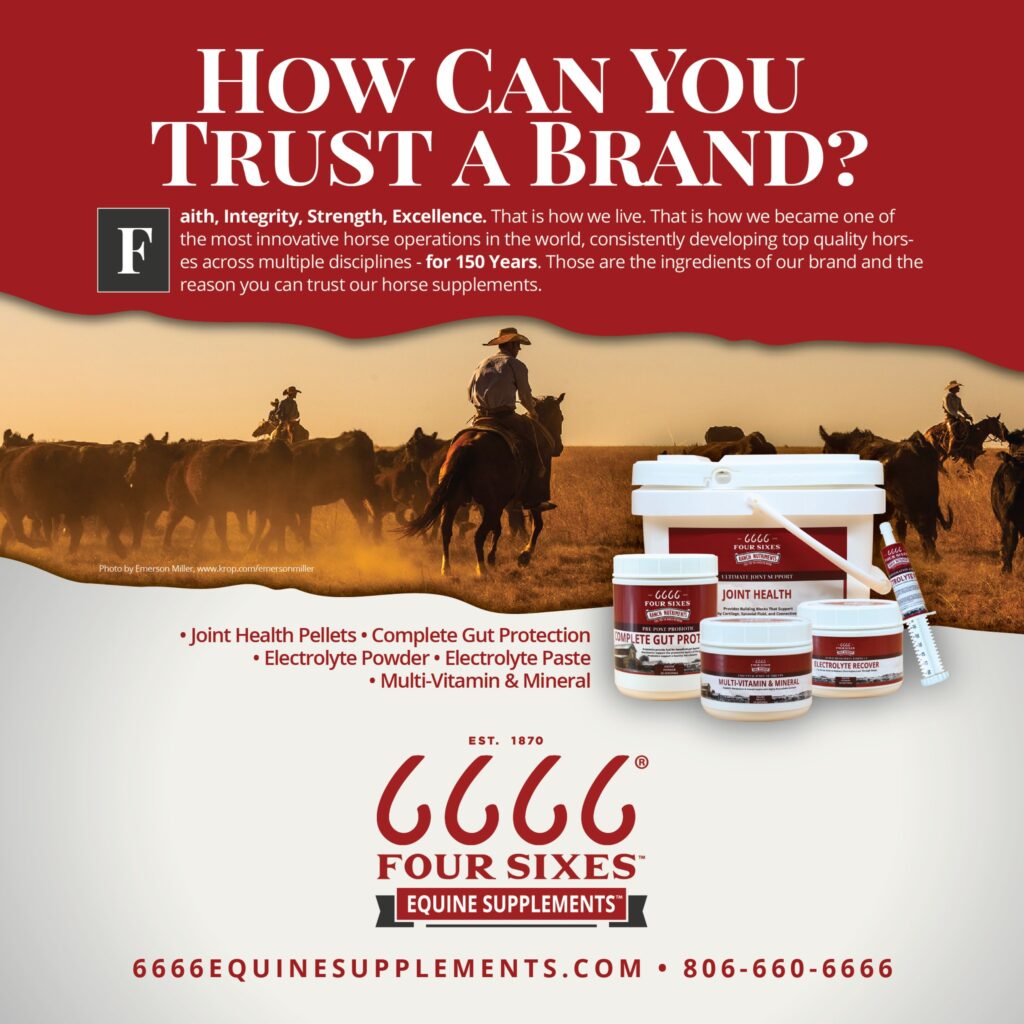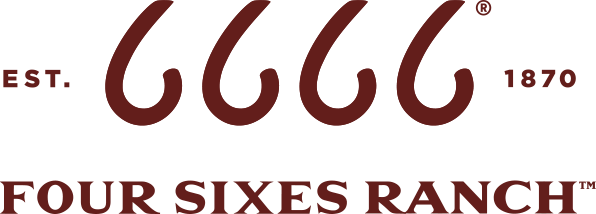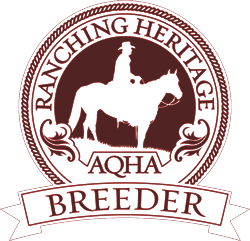An Interview with Dr. Nathan Canaday, Horse Division Manager, and Fallon Rand, Sales Prep Manager
At the legendary Four Sixes Ranch, sales prep season is one of the most intense, rewarding, and carefully managed times of the year. Horses destined to carry forward the legacy of this historic ‘L’ brand are prepared for the annual Return to the Remuda Sale —an effort that requires not only excellent genetics but also meticulous daily care.
To gain an inside, behind-the-scenes look, we sat down with Dr. Nathan Canaday, Horse Division Manager at the Four Sixes, and his assistant Fallon Rand, who leads the sales prep program. Together, they shared how they manage this demanding season, what goes into preparing yearlings and riding horses for sale, and what they want buyers to know when taking home a new horse.
Meet the Team Behind Horse Sales Prep
Both Fallon and Dr. Canaday began their journeys with the Four Sixes Ranch as interns. Fallon joined in 2018 as a sales prep intern and returned full-time in 2023 to head up sales preparation, in addition to supporting the Ranch’s veterinary clinic, riding horses, and filling in wherever needed.
Dr. Canaday first interned in 2006, then returned in 2007 before completing veterinary school. He joined the ranch full-time in 2011 as an Associate Veterinarian and has served as Horse Division Manager for the past two and a half years. Together, they now lead the effort to ensure every horse leaving the Four Sixes has the best possible foundation.
What ‘hooked them’ on sales prep? Both point to the transformation of the horses. Fallon described the satisfaction of seeing yearlings evolve from the day they’re brought up from pasture to the moment they walk into the sale ring, often looking almost unrecognizable. For Dr. Canaday, watching a foal born from a breeding decision made two years earlier, grow into a well-trained, high-quality horse, is a reward beyond words.
Sales Prep at the Four Sixes Ranch: A Step-By-Step Bird’s Eye View
Sales prep season officially begins in mid-June, and runs through the end of September, but preparation starts earlier. Weanlings are halter-broke and handled before being turned out, giving them a head start when they come up as yearlings.
Day one of sales prep as a yearling picks up where it was left off – with lessons in halter breaking, gentling, and having hands laid on them. From there, the program progresses steadily:
- Groundwork, groundwork, groundwork! Yearlings learn how to lunge, work in the round pen, and go through all kinds of desensitization exercises.
- Daily conditioning and exercise routines, based on each horse’s individual fitness needs.
- Lots of handling to expose the horses to new situations, including trailer loading, bathing, tying, and more.
The goal is to produce young horses who are not only fit, but also confident and adaptable.
“We really try to give them a solid foundation so that no matter what their new owners want to do with them, they’re set up for success,” Fallon explained. “A wide variety of people come to the sales. Some people want to show and ride the horses competitively, some want a broodmare, others just want to load that filly or colt up and have a really nice, reliable horse they can get along with. Whatever the buyer’s goal, we teach the horses how to think and problem solve, so that no matter where they end up, they have a good attitude, and can get along in any program.”
Each year, around 50 to 60 horses are prepared for sale, including yearlings, young riding horses, and seasoned cowboy horses. The latter, having gained their education out on the ranch, are not formally sales-fitted, but rather offered with real ranch work experience.
Fit Over Fat: The Ranch’s Conditioning Philosophy
One of the guiding principles at the Sixes is striving for excellence, whether that is through genetics, training, or nutrition.
As Dr. Canaday puts it, “Fat is everyone’s favorite color, but we’d rather have these horses fit than fat.”
Fitness means preparing horses for long-term soundness.
“From a veterinary perspective, being fit is very important no matter what somebody’s goals are for that horse. Being overweight sets horses up to have foot issues, and if you are feeding young horses too much, too aggressively, you predispose them to developmental joint issues, like OCDs, which impact them for life. If somebody wants to use these young horses as a broodmare, being overweight sets them up to have metabolic problems later on. From the performance or ranch horse perspective, you want these horses to be strong and in shape because the more fit a horse is, the more likely they are to withstand everyday ‘wear and tear.’”
Slow and Steady: The Four Sixes Nutritional Approach
“I really do believe in the old saying ‘good feeding and good breeding,’ says Dr. Canaday. “If you combine good genetics with good feeding, the results speak for themselves. You can’t take horses who are not bred well and feed them into something good. Similarly, you can have a really well bred horse, not feed them well, and they will underperform.”
From a tactical perspective, the Ranch focuses on steady, balanced nutrition:
- High-quality forage from the get-go: Weanlings are turned out on the Ranch’s wheat fields, and supplemented with alfalfa hay when needed.
- Balanced rations: Grain is fed conservatively to avoid rapid growth and related issues.
Dr. Canaday is careful to mention that nutrition really starts with the broodmare and making sure that she is well fed. The foal should have optimal nutrition through their entire journey, starting as a fetus.
By following these fundamentals at every age, the Ranch avoids the pitfalls of last-minute, heavy feeding that can cause developmental issues.
“Some sales fitting operations just pour grain into horses at sales times, and it is too rich, causing the horses to grow way too fast. That’s how you set horses up for OCDs. I would much rather feed a balanced grain ration very conservatively over time for a slow build of that horse.”
Vitamins, minerals, and omega-3 oils also play an important role. Horses begin receiving the Four Sixes Multi-Vitamin & Mineral as weanlings in the wheat fields, and remain on it through the sales season. This ensures they have a well-rounded nutrient balance for optimal growth. Oils support coat health, condition, and anti-inflammatory support for growing joints.
The Importance of Proactive Equine Joint Care
Joint health is a particular priority during sales prep. Moving horses from pasture to stalls and structured exercise routines changes their activity levels and puts new stress on developing joints.
“I’m a firm believer in ranch horses being ranch horses,” says Dr. Canaday. “The more that young horses can be out on pasture, it helps stimulate proper bone growth, and it helps their feet grow strong. This foundation of growth is so important. We often put our young horses out in one of our roughest pastures called ‘Big Bull.’ It has a big canyon and a lot of rough country, which helps them develop really good feet and really good bones.”
“As we start bringing these horses up for sales prep, this is the first time they are getting stalled, which applies stress and pressure to their joints. I heard it worded best by an older farrier who said that ‘motion is lotion for your joints.’ You’ve probably experienced this yourself. If you’re used to moving and going all the time, and then you quit moving, you get stove up quick, to use a cowboy term.
Not to mention the stress of exercise conditioning, getting fit, and general sales fitting stress. When horses come up into stalls, we immediately add Joint Health Pellets for proactive joint care, and Complete Gut Protection to help counteract any digestive stress in the transition.”
Fallon also makes sure to tailor exercise individually, balancing the needs of easy-keepers and hard-keepers, active horses and laid back horses.
Buyer’s Guide: What to Expect After the Sale
One of the main messages that Dr. Canaday and Fallon want buyers to know is that change is stressful for horses. New environments, new feeds, and new routines require lots of adjustment.
“I would encourage people whenever they buy a horse at a sale, to think about two things. One is to keep them on a gut health supplement, like Complete Gut Protection. I cannot emphasize enough the importance of gut health, which is now referred to as the gateway to health. Second, is to consider electrolytes. That’s top of mind right now with how hot it is, but some horses are also very particular in their water taste. Sometimes they don’t want to drink as much water when they go to a new home, so supplementing with Electrolyte Powder helps encourage them to keep drinking.”
Equally important is ongoing maintenance of the horse after purchase. That includes maintenance of nutrition, training and conditioning.
“You cannot buy a yearling or even a riding age horse, set them on a shelf, not touch them for 6 months, and then bring them back out, and expect them to be at the same level they were at the time you bought them. These are living creatures that require maintenance. When you see a horse that you want to buy, they are desirable to you because of a culmination of their training, how they’ve been bred, and how they’ve been fed. Remember, good feeding and good breeding. Keep them on a probiotic and a joint health supplement. Maintain them.”
Fallon adds that horses need consistent handling and work.
“Be patient. These are young horses that we put a lot of work into, but at the end of the day they are still horses, and many have never left the Ranch before in their life. When you take them to a new home, give them time to adjust. When you do go to work with them, be slow and intentional, and try to understand where they’re coming from. It takes time to build trust and your own relationship with them. Keep up with their training and their progress.”
Fallon also encourages buyers to match their purchase to their goals.
“The horse business is all about dreaming. You’re really buying an opportunity and a dream. We are passionate and love our horses so much. We offer them to the public because we want to share that dream with you. We strive for excellence in all that we do so that we can deliver a proven product, which in this case, is the horse of someone’s dreams.”
The Unsung Heroes: Sales Prep Interns
Behind every polished yearling is an incredible team. Under Fallon’s leadership, Four Sixes Ranch sales prep interns play an invaluable role, learning the ropes while contributing to the day-to-day work of prepping yearlings. From groundwork and exercise to working alongside veterinarians, farriers, and the Ranch’s marketing team, interns gain a wide range of hands-on experience. For many, this program has sparked careers in veterinary medicine, farm management, equine reproduction, and training.
Fallon herself was once an intern, making her leadership role in guiding the next generation of horsemen and women all the more meaningful.
“We really, really appreciate our sales prep interns!” she says.
Carrying Forward a 150-Year Legacy
Every Four Sixes horse is branded with an ‘L’ on their shoulder. Originally an anti-theft measure 150 years ago, this brand now represents history, quality, and excellence.
“When you buy a horse with the Four Sixes brand, you become part of the legacy. You don’t get this when you buy a car or a truck. Remember that the next time you purchase a horse. You are ultimately buying into a dream.”
Sales prep season at the Four Sixes is busy, no doubt, but it is also a ritual of sorts. Through thoughtful breeding, balanced nutrition, careful training, and a commitment to excellence, the Ranch ensures that every horse leaving their program carries the meaning of the brand. Sales prep is truly a tradition of setting horses up for lifelong success and connecting horsemen and women with the horse of their dreams.
See this legacy in action at the 2025 Return to the Remuda Sale, September 26-27, in Guthrie, Texas.
For more information on the Four Sixes Equine Supplements visit https://6666equinesupplements.com/blogs/news/how-the-four-sixes-ranch-prepares-horses-for-sale
